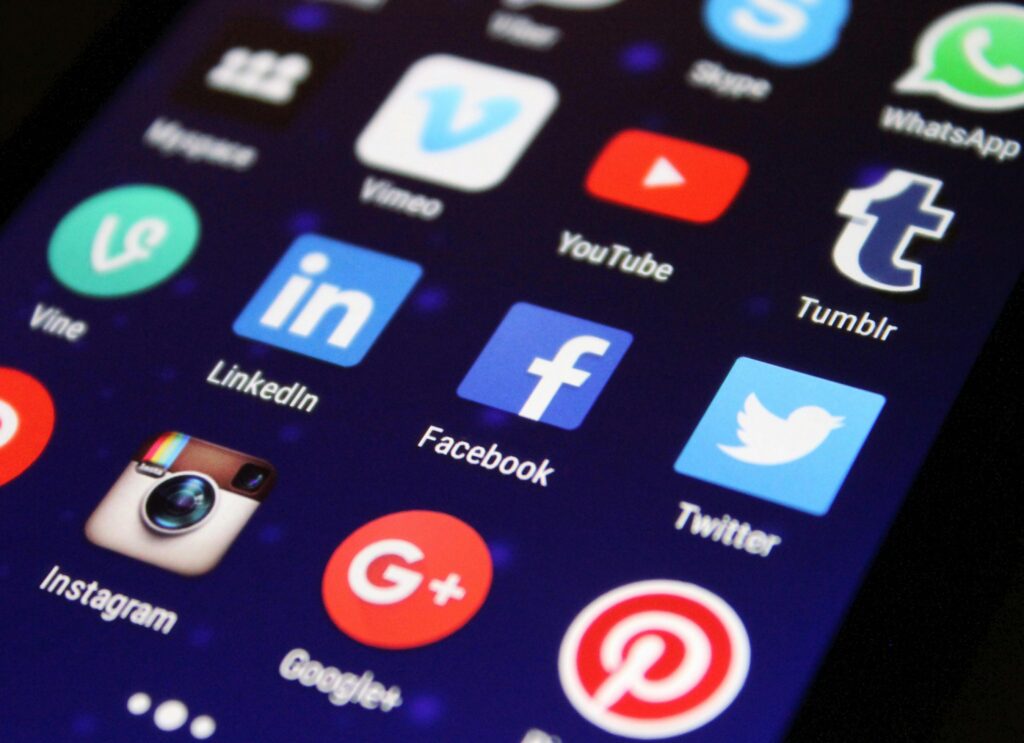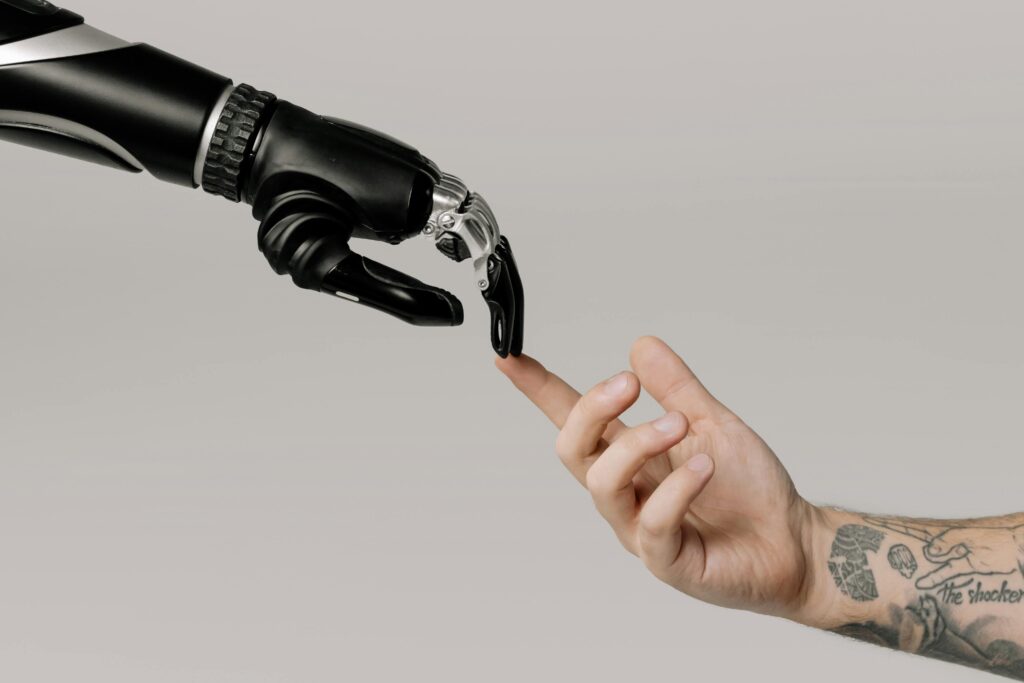The digital marketing landscape in 2025 is changing even faster than it has in previous years, with trends in AI-based automation, tighter personalization, and growing trends like voice search and visual search. 2025 is an essential year for marketers and businesses alike; if you want your brand to successful in this new environment, you must know how to effectively take advantage of these concepts.
This ultimate guide discusses the most important trends to be aware of that are changing digital marketing in 2025, effective and best practices to apply, and the tools, great and small, that can give you a leg up on your competition. If you’re a comic book aficionado, or a small business owner, this post will help you prepare your marketing in the most efficient way and create measurable results.

1. What Does Digital Marketing in 2025 Look Like?
As we head toward Digital marketing in 2025, the future of digital marketing is being influenced by several unstoppable forces revolving around technology, data, and ultimately the audience’s human experience.
AI-Driven Personalization
AI is one of the most transformative forces in digital marketing. Brands are no longer sending generic products or services; they are providing ultra-personalized content, product suggestions, and ads thanks AI algorithms that analyze customer behavior in real time.
If customers never took a single action from AI, consider all the times they use an AI-powered chat system (yes, they are powered by AI) and access an instant or near-instant answer to a question. From hyper-targeted email marketing campaigns tailored specifically to an individual user to other forms of automated personalization, ‘personalization’ will trigger better engagement and loyalty.
Privacy-First Marketing
As marketers in 2025 are starting to move away from third-party cookies because of growing concern towards data privacy and legislation including GDPR and CCPA, the focus of data that marketers are pursuing is shifting from third parties, to first party data or data collected directly from customers (with their consent). First-party data is more trusted by customers because it comes directly from the customer themselves, and it is also more easily and accurately targeted.
The Rise of Social Commerce
Social media platforms have evolved past being merely a social connection and sharing site. Platforms such as Instagram, TikTok, and Facebook are evolving into social commerce, creating seamless online storefronts where consumers can discover, browse, and purchase products and services without leaving the app. The lines between marketing and commerce continue to blur.
The Use of AR and VR
The Use of AR and VR Enables Immersive Experiences Augmented Reality (AR) and Virtual Reality (VR) are being utilized by brands to create immersive shopping experiences. The ability to virtually try-on clothing or visualize a piece of furniture in a space consumers want to decorate is just the beginning. By using these tools in creative and impactful ways, brands deliver unexpected, memorable experiences that have a potential lasting impact.
Adoption of Voice & Visual Search
The use of image search tools and smart speakers are on the rise. Social media marketers must optimize for voice and visual search in an omni-channel experience. This means marketers must adapt their SEO strategy to include conversational keywords and structured data to help voice assistants and search engines better understand content
2. The Power of AI in Digital Marketing 2025 is Changing Everything
In 2025, AI plays a major role in the world of Digital Marketing in 20225. It is changing how marketers create content, analyze data, and connect with customers.

AI Driven Content Developments
Generative AI software, such as ChatGPT and Jasper, empowers marketers to create blogs posts, social media captions, and ad creative in a matter of seconds. It enables marketers to take a step back and focus on larger organizational strategies and creativity. Generative AI tools can even humanize content to the user by providing tone and writing style options to specific audience types.
Predictive Analytics for Better Targeting
By just using AI to analyze consumer behavior together. Marketers can forecast consumer actions which equates to improve targeting, personalized offers, and higher conversion rates.
Automated Ad Bidding and Optimization
With AI, ad spend can be dynamically allocated to various platforms (such as Google Ads and Facebook Ads) so that the budget is always being spent wisely and generating max ROI.
Chatbots and Conversational AI
AI chatbots also offer 24/7 customer support with instant responses that take a user’s previous interactions and preferences into account. This adds to customer satisfaction, while improving response time.
3. The 5 Best Digital Marketing Tactics in 2025
If you want to excel at digital marketing in 2025, incorporate the following five evidence-based techniques:
1. AI Hyper-Personalization
Use AI tools to identify subgroups within your audience to target with content. Deliver individualized content driven by their interests, actions, experiences, and buying behavior.
2. Voice and Visual Search Optimization
Use conversational keywords for your SEO. Optimize your FAQ pages. Include structured data on your website so that voice search individuals can make requests and ask questions. Optimize your images so they help with visual search. Images should be top tier and alt text should be provided.
3. Short-Form Video Content
Platforms such as TikTok and Instagram Reels dominate audience engagement metrics. Short, punchy, fun, and educational videos target younger audiences empowered to share.
4. Collect First-Party Data
First-party data is the best and often the more reliable data. We advise building and leveraging your email lists, loyalty programs, and community groups to collect first-party data with the users’ knowledge and consent.
5. Interactive and Immersive Content
Although there are unlimited choices for brands to engage audiences, interactive and immersive content is one dynamic way. Interactive and immersive engagement include; quizzes, calculators, polls, augmented reality try-ons, and 360-degree video experiences.
4. Best digital marketing tools in 2025
Choosing the right tools can make or break your digital marketing in 2025 strategy. The best digital marketing tools in 2025 include, by category:
- Content Generation: Jasper, ChatGPT, Copy.ai
- SEO & Analytics: SEMrush, Ahrefs, Google Analytics 4
- Social Media Management: Buffer, Hootsuite, Later
- Customer Data Platforms: (CDP): Segment, Tealium
- Email Marketing Automation: MailChimp, ActiveCampaign, HubSpot
- Interactive Content: Outgrow, Typeform
- Voice & Visual Search Optimization: SEMrush Voice Search, Pinterest Lens Insights
These best digital marketing tools in 2025 will help automate repetitive tasks, improve targeting capability, and allow you to make decisions in real-time based on the most up-to-date data.
5. What to Avoid in Digital Marketing in 2025
Avoid these common mistakes to keep your digital marketing in 2025 strategy sharp:
- Basing Everything around Third-Party Cookies: With browsers eliminating cookies, you’re best throwing that outdated tactic in the trash – third-party cookies will only hurt your targeting accuracy.
- Using Generic and Untargeted Content: People will not engage with content that isn’t personalized.
- Ignoring Structured Data and Schema Markup: Structured data and schema markup are crucial for rich results, featured snippets, and voice searches.
- Not Optimizing for Mobile: You need to think in mobile-first indexing, as most of your users access the content via their smartphones.
Not Paying Attention to Privacy Compliance: Ignoring consent and transparency only destroys trust with the consumer and leads to legal ramifications.
Measuring success: The new KPIs for digital marketing in 2025
Where impressions and click-through rates used to dominate, the new metrics are more meaningful. Here they are:
- Customer Lifetime Value (CLV): Analyze long-term loyalty with future revenue and other future value.
- Artificial Intelligence Prediction Accuracy: When utilizing predictive analytics, determine return in terms of forecast accuracy (1 – forecast accuracy).
- Voice / Visual Search Rankings: Track your position in voice queries, as well as visual on page search results.
- Engagement on Short-Form Video: Not just views, but also shares and engagement rates.
- Increase in first-party data: number of subscribers and permission-based escalation contacts.
By focusing on these, you will be able to measure the real impact of your marketing.
AI in Digital Marketing 2025: How Artificial Intelligence is Shaping the Future
What is AI in digital marketing 2025?
AI (Artificial Intelligence) is the use of technology that enables machines to learn, sift through data, and make decisions, thereby impacting how marketeers ultimately run their marketing in 2025. It enables businesses to automate repetitive tasks, personalize customer experiences, and predict consumer behavior with a high degree of accuracy.

Why is AI important for digital marketing in 2025?
In 2025, AI is important for digital marketing because it allows marketers to deliver more relevant content to customers, optimize advertising budgets, and use AI-powered chatbots, to answer customers immediately. With the overwhelming amount of data, or simply big data, AI can process the data and use latent information and trends faster than human beings, thereby providing brands they serve and/or support with a global advantage.
How is AI used in digital marketing in 2025?
Marketers are using AI to create content (blog posts, social media updates), generate personalized email campaigns, and evaluate customer data, and predict purchasing patterns. AI has been leveraged to fill advertising space in real-time bidding, optimize advertising for voice search, and have more efficient and effective campaigns overall.
What are the advantages of AI in digital marketing in 2025?
The advantages are enhanced customer interaction through personalized communication, increased conversion rates, decreased marketing budgets due to automation, and a more intelligent and rapid data-driven decision-making process. In summary, AI in digital marketing 2025 is transforming the way brands engage with their target audience because it combines automation, personalization, and machine learning insights to become a must-have of any forward-thinking marketing strategy.
Frequently Asked Questions (FAQ)
Q1: What is AI in digital marketing 2025?
AI will be utilized in digital marketing 2025 in the use of tools and algorithms based on artificial intelligence to perform automated marketing activities and personalized marketing efforts like content creation, predictive analytics, and customer interactions.
What are the 5 best digital marketing tactics in 2025?
The 5 best digital marketing tactics in 2025 include AI-powered personalization, voice & visual search optimization, short-form video marketing, first-party data strategies, and interactive content.
Q3: What’s the best digital marketing tools in 2025?
The top tools include Jasper and ChatGPT for AI content, SEMrush and Ahrefs for SEO, Buffer for social media management and Outgrow for interactive content.
What are the top benefits of digital marketing in 2025?
he main advantages of digital marketing in 2025 are AI-driven personalization, inexpensive advertising, real time analytics, worldwide exposure, and a better ROI. Businesses can target the right audiences easily by maximally leveraging first party data and automation tools.
What are the predictions for the future of digital marketing in 2025?
The future scope of digital marketing in 2025 is immense, with advancements in technology such as AI, automation, voice search, looming ahead, as well as immersive technology involving such avenues as augmented and virtual reality. The field will continue to grow as more users are coming online and creating new accounts.

Interesting points about adapting to opponents’ ranges! Seeing platforms like phmapalad online casino innovate with quick registration & security is a smart move for player trust, too. Makes the whole experience smoother!
Interesting read! Seeing platforms like phmapalad slot download really push innovation – especially with quick registration & security features. Smart deposits are key for wider accessibility too! 👍
Interesting article! Understanding opponent tendencies is key, especially in tournaments. Seeing platforms like 99wim game cater to specific markets shows smart adaptation. Quick registration is a huge plus for accessibility!
Really insightful article! It’s great to see platforms like big bunny vip prioritizing secure registration & responsible gaming-essential for a healthy experience. Building trust is key in this space!